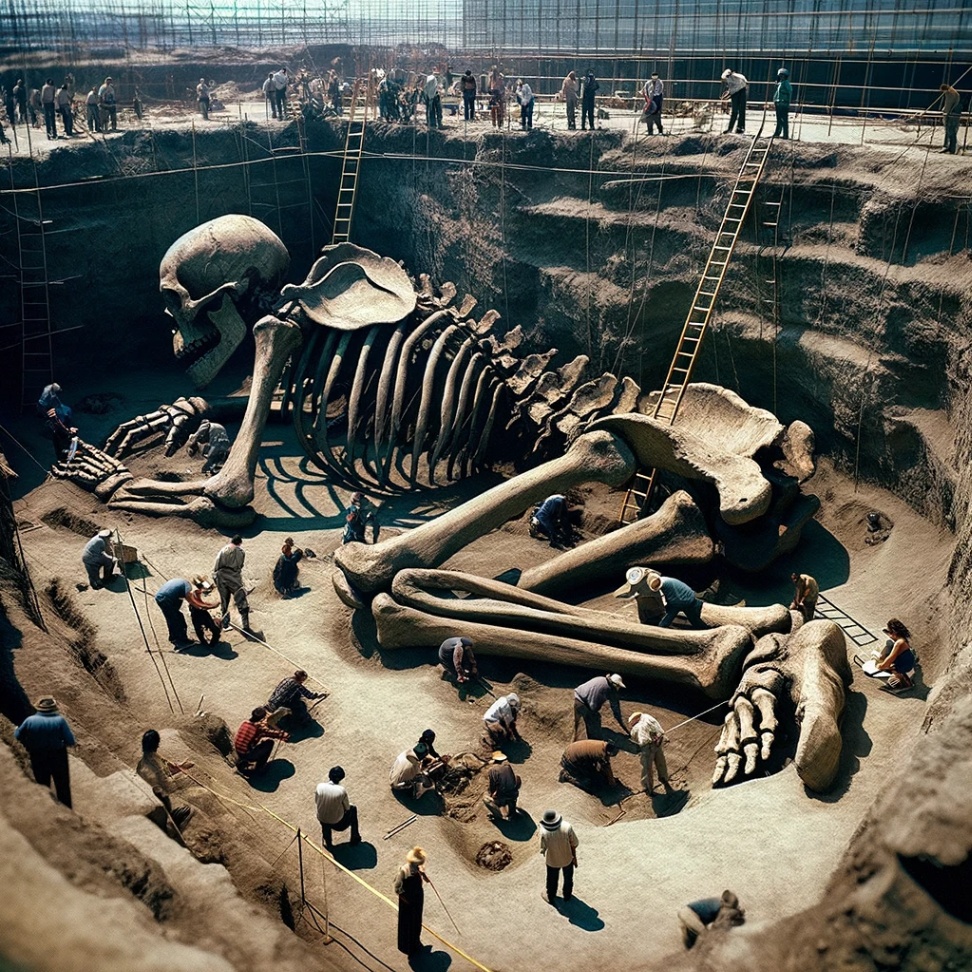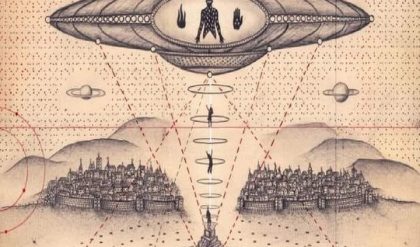In a groundbreaking discovery that is set to reshape our understanding of human evolution, archaeologists have uncovered the skeleton of a giant primitive man with striking features that suggest advanced bipedalism and a unique posture. This finding offers new insights into the development of early human ancestors and their adaptations to their environment.
The Discovery
The skeleton, unearthed in a remote excavation site, is notably larger than any known prehistoric human remains. The size and structure of the bones suggest that this individual was significantly taller and more robust than modern humans. The excavation team, led by Dr. Helen Carter, found the remains in a well-preserved state, allowing for detailed analysis of the skeletal features.
The most surprising aspect of the discovery is the evidence of advanced bipedalism. The structure of the pelvis, femur, and lower limbs indicates that this giant primitive man was fully adapted to walking upright, similar to modern humans. However, the alignment and proportions of these bones suggest a unique posture that differs from the standard bipedal gait observed in contemporary humans.

Implications for Human Evolution
The discovery of this giant primitive man’s skeleton challenges existing theories about human evolution. Traditional models of bipedalism emphasize gradual adaptation over time, with early hominins developing upright walking in a relatively linear progression. The advanced bipedalism and unique posture of this giant specimen suggest that early human evolution may have been more complex and varied than previously thought.
Dr. Carter explained, “The skeletal features we’ve uncovered indicate that this individual had a sophisticated form of bipedalism, potentially adapted to specific environmental or functional needs. This finding could prompt a reevaluation of our understanding of how early humans evolved and adapted to their surroundings.”
Analysis and Findings
Initial analysis of the skeleton reveals several unique characteristics:
Pelvic Structure: The pelvis is broader and more robust, suggesting a different weight distribution and gait compared to modern humans. This may have provided greater stability and strength.
Leg Proportions: The femur and tibia are proportionally longer, which could imply adaptations for long-distance travel or specific locomotion strategies.
Spinal Curvature: The curvature of the spine is distinct from that of contemporary humans, indicating a unique posture that may have influenced movement and balance.
These features provide crucial clues about the lifestyle and physical capabilities of this giant primitive man. The unique posture and bipedal adaptations may have implications for understanding how early humans interacted with their environment and the evolutionary pressures they faced.
Context and Significance
The discovery is significant not only for its implications for human evolution but also for its potential to shed light on the diversity of early human species. The existence of such a distinct form of bipedalism suggests that early hominins may have exhibited a wider range of physical adaptations than previously recognized.
This finding also contributes to the ongoing debate about the factors driving human evolution, such as climate change, environmental pressures, and social behaviors. The unique characteristics of this giant primitive man’s skeleton may offer new perspectives on these evolutionary forces.
Future Research
The discovery is expected to lead to further research and exploration. Paleoanthropologists and evolutionary biologists will likely conduct additional studies to analyze the skeletal remains and compare them with other early human fossils. The goal will be to gain a more comprehensive understanding of how this giant primitive man fits into the broader narrative of human evolution.
Conclusion
The unearthing of a giant primitive man’s skeleton with advanced bipedalism and a unique posture represents a major milestone in archaeology and evolutionary science. This remarkable discovery challenges existing theories and opens new avenues for research into early human adaptations and evolution. As scientists continue to study these ancient remains, the insights gained will contribute to a deeper understanding of our evolutionary history and the diversity of our ancient ancestors.





